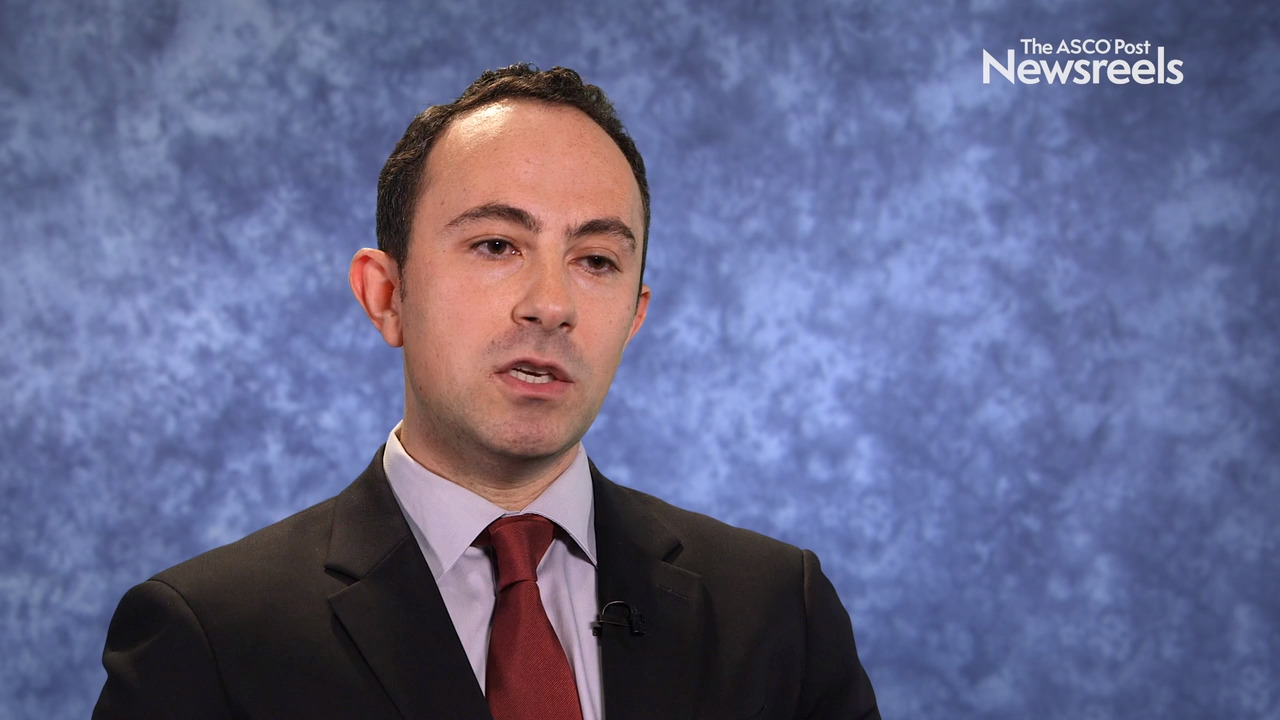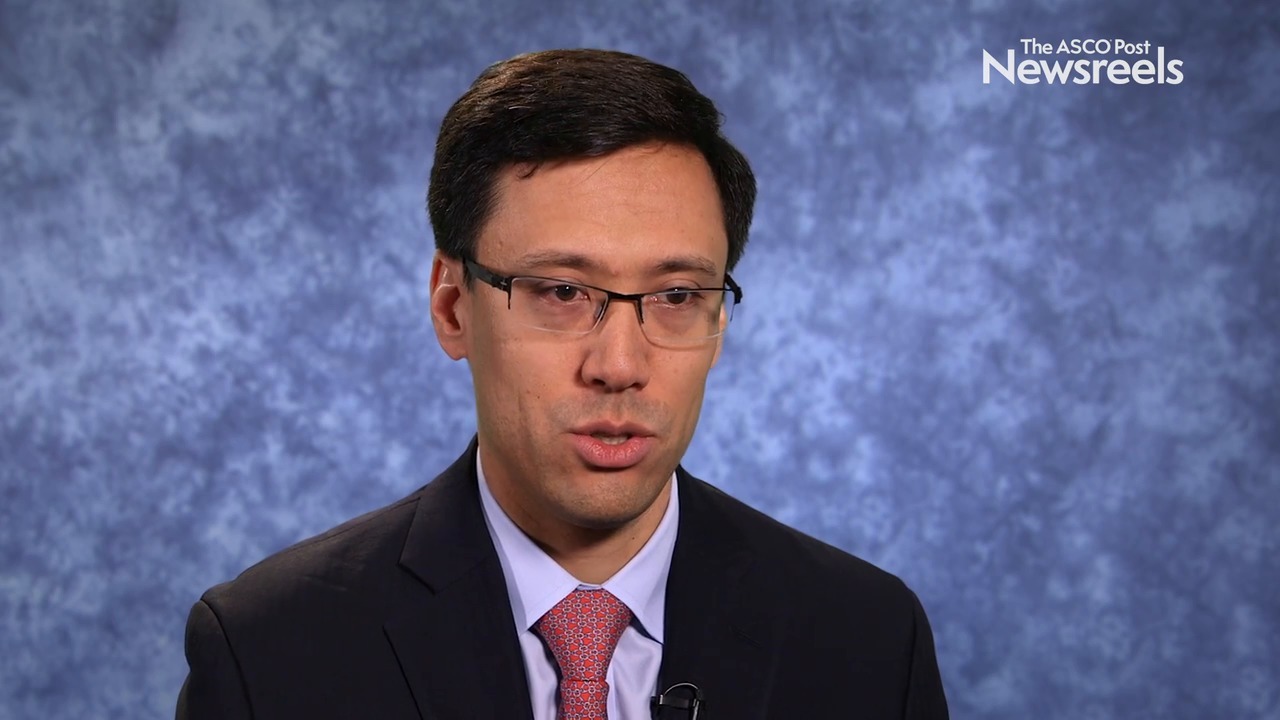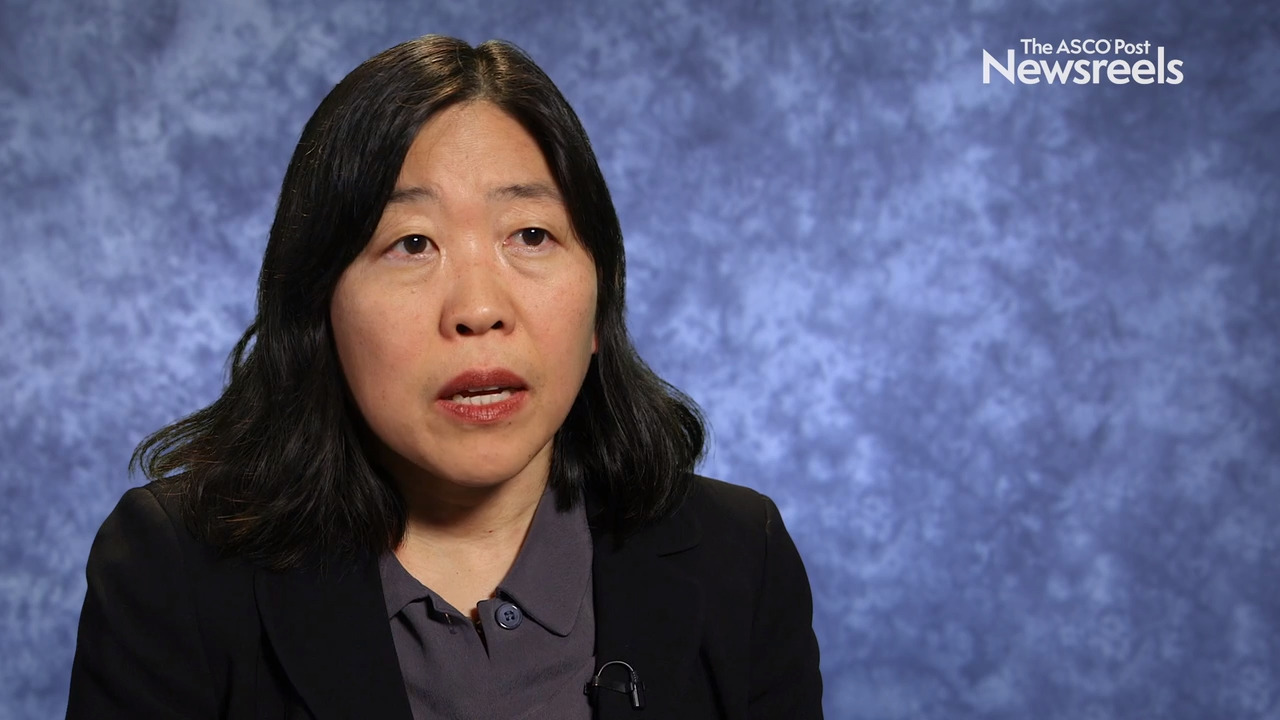Steven H. Lin, MD, PhD, on Esophageal Cancer: Proton Beam vs Intensity-Modulated Radiation Therapy
2019 ASTRO Annual Meeting
Steven H. Lin, MD, PhD, of The University of Texas MD Anderson Cancer Center, discusses phase II findings that showed proton beam therapy improved total toxicity burden score with no difference in progression-free survival when compared with intensity-modulated radiation treatment (Abstract LBA2).
Youssef Zeidan, MD, PhD, of the American University of Beirut Medical Center, discusses study findings showing that, in patients with one to three positive lymph nodes, postmastectomy radiation treatment decreased the risk of locoregional recurrence, particularly in estrogen receptor–positive disease (Abstract 83).
David Routman, MD, of the Mayo Clinic, discusses his study findings showing that detectable human papillomavirus circulating tumor DNA in the postoperative setting may be linked to disease progression, which may help improve patient selection for treatment intensity (Abstract LBA5).
Andreas Rimner, MD, of Memorial Sloan Kettering Cancer Center, discusses study findings showing that, for patients with stage III non–small cell lung cancer, durvalumab reduced the rate of and time to disease progression vs placebo and also reduced the number of new distant lesions (Abstract LBA6).
Erica H. Bell, PhD, of The Ohio State University, discusses phase III findings from a prognostic and predictive molecular subgroup analysis of radiotherapy vs radiotherapy plus procarbazine/lomustine/vincristine in high-risk low-grade gliomas (Abstract 161).
Sue Sun Yom, MD, PhD, of the University of California, San Francisco, discusses phase II results showing that swallowing-related quality of life after deintensified chemoradiation therapy may improve in patients with p16-positive, nonsmoking-associated, locoregionally advanced disease (Abstract LBA10).





